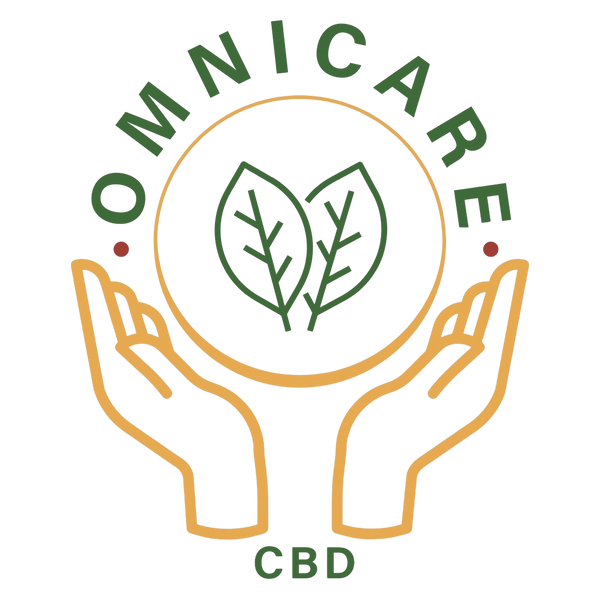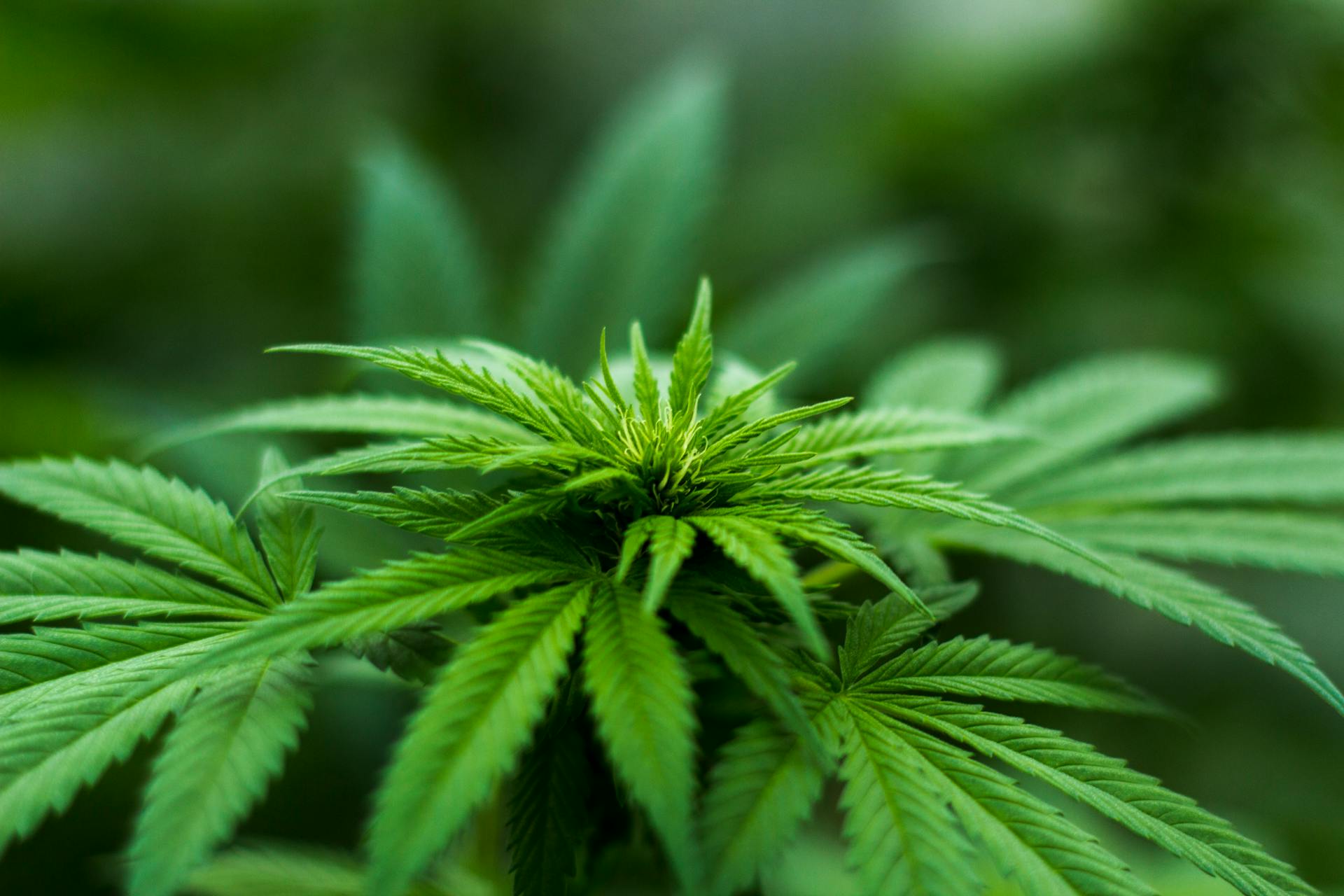CBD Basics
Collapsible content
What is CBD (Cannabidiol)?
CBD (Cannabidiol) is a naturally occurring compound found in the cannabis plant. Unlike THC, it’s non-psychoactive — meaning it won’t get you “high.” Many people use CBD as part of their wellness routine to help them feel more balanced. It’s often chosen to support relaxation, help take the edge off daily stress, soothe everyday aches or puffiness, encourage restful sleep, and promote a general sense of well-being.
Is CBD legal?
Yes, CBD derived from hemp is legal in most parts of the United States, as long as it contains less than 0.3% THC. However, the legal status of CBD can vary from country to country and even state to state, so it’s important to check your local regulations before purchasing.
How does CBD work?
CBD interacts with the body’s endocannabinoid system (ECS), a complex system involved in maintaining internal balance. The ECS plays a role in things like mood, appetite, rest, and how our bodies respond to everyday stressors. By interacting with this system, CBD may help support a sense of calm, relaxation, and overall well-being.
Will CBD get me high?
No, CBD will not get you high. Unlike THC, which is the psychoactive compound in cannabis, CBD is non-psychoactive. Many people use it to support relaxation and help ease everyday tension,, but it won’t cause the "high"
typically associated with cannabis use.
What are the potential benefits of CBD?
Many people include CBD in their daily routine to help them feel more balanced and at ease. Some of the most commonly reported experiences include:
Feeling more calm and centered during stressful moments
Getting more restful, uninterrupted sleep
Easing everyday tension in joints and muscles
Taking the edge off physical discomfort after a long day
Supporting overall balance and a sense of well-being
Everyone’s experience with CBD is a little different. Always consult with a healthcare professional before using CBD for specific health concerns.
How do I take CBD?
CBD can be consumed in various forms, including:
CBD Oil/Tinctures: Drop directly under the tongue for fast absorption.
CBD Capsules: A convenient way to consume a consistent dose.
CBD Gummies: A tasty, easy-to-consume option.
CBD Topicals: Creams or lotions applied to specific areas of the body.
CBD Vapes: Vaporized CBD, inhaled for quick effects.
Each method may have different absorption rates, and the best form depends on what feels right for you.
How much CBD should I take?
The ideal dosage of CBD varies depending on factors like body weight, life-style and personal goals. It’s best to start with a low dose and gradually increase until you find the amount that works best for you. Always consult with a healthcare provider, especially if you are on any medications or have specific concerns.
Are there any side effects of CBD?
CBD is generally considered safe for most people. However, some users have reported mild reactions such as:
Dry mouth
Feeling more relaxed or sleepy
Changes in appetite — especially when taking higher amounts.
As with any supplement, if something doesn’t feel right, it’s best to pause use and check in with a healthcare provider.
Can I take CBD with other medications?
CBD may interact with certain medications, especially those processed by the liver. If you're taking prescription meds or have health concerns, it's a good idea to check in with your healthcare Provider before adding CBD to your routine.
How long does it take for CBD to work?
The time it takes for CBD to take effect depends on the method of consumption.
For example:
CBD oil/tinctures may take 15-30 minutes.
CBD gummies or capsules may take 1-2 hours since they need to be digested.
CBD vapes may be felt within minutes.
Results can vary, so it may take a little experimenting to find what works best for you.
Are your CBD products third-party tested?
Yes, all of our CBD products are tested by independent third-party laboratories to ensure they meet quality and safety standards. We share lab results (Certificates of Analysis) for every product we sell, so you can check the purity and potency of our CBD for yourself.
Will CBD show up on a drug test?
While CBD itself is not typically tested for on a drug test, some full-spectrum CBD products contain trace amounts of THC (less than 0.3%). These small traces of THC may show up on a drug test, especially if you are using high doses. If you hare concerned about drug testing, consider choosing broad-spectrum CBD or CBD isolate, which contain no THC.
How should I store my CBDproducts?
To ensure your CBD products stay fresh and maintain their potency, store them in a cool, dark place, away from heat, light, and humidity. A pantry or drawer is
typically an ideal location.
Do you offer international shipping?
No, international shipping is not currently available.
What is the minimum age to purchase CBD products?
The legal age to purchase CBD products varies depending on your location. In most places in the United States, the minimum age is 21. However, in certain states, individuals over the age of 18 may be legally allowed to purchase CBD. Always check your local regulations to confirm the legal age in your state or country.
What is CBDA? (Cannabidiolic Acid)
CBDA is the raw, unheated precursor to CBD, found in raw hemp or cannabis.
How is CBDA different from CBD?
CBDA must be heated (decarboxylated) to become CBD. It may have its own unique effects on mood and general well-being.
What are the potential benefits of CBDA?
Early research suggests that CBDA may help support overall wellness, including promoting calmness and easing discomfort.
What is CBG? (Cannabigerol)
CBG is known as the “mother cannabinoid” — it’s the precursor to CBD, THC, and CBC.
Is CBG psychoactive?
No, it’s non-intoxicating, so it won’t get you “high.”
What are the potential benefits of CBG?
• May help with overall wellness and comfort
• Supports a healthy balance in the body
• Might be beneficial for eye health
• May support healthy bladder function
What is CBN? (Cannabinol)
CBN is a mildly psychoactive cannabinoid that forms as THC ages or oxidizes.
What are the potential benefits of CBN?
•May help promote better sleep
• May support relaxation
• Might help ease discomfort or soreness
Does CBN get you high?
Mildly, but far less than THC.
What is CBC? (Cannabichromene)
It is a natural compound in cannabis that’s non-psychoactive and may help support a positive mood and overall comfort.
What are the potential benefits of CBC?
• May help support cognitive function and overall brain wellness
• May assist with everyday discomfort and natural recovery
• May promote clear, balanced skin
Is CBC common in products?
Less common than CBD or CBG, but emerging in full-spectrum and broad-spectrum products.
What is Delta-9 THC? (Tetrahydrocannabinol)
It’s the main psychoactive compound in cannabis that produces the “high.”
Is Delta-9 legal?
In hemp products, it must be <0.3% by dry weight to be federally legal. Otherwise, it’s only legal in states that have legalized recreational or medical cannabis.
What are the potential effects of Delta-9 THC?
• May create a feeling of euphoria
• May help support comfort and relaxation
• May stimulate appetite
• Might heighten sensory perception
What is Delta-8 THC?
It is a milder psychoactive version of Delta-9 THC, derived from hemp.
Is Delta-8 legal?
It is federally legal under the 2018 Farm Bill, but banned or restricted in some states.
How does Delta-8 feel compared to Delta-9?
· Typically offers a milder, less intense high
· Often described as more clear-headed and calming
What is THCA?
It is the raw, non-psychoactive form of THC found in live or unheated cannabis.
Does THCA get you high?
No — THCA itself is non-psychoactive. It only becomes THC (the compound that causes a high) when it's heated through smoking, vaping, or cooking.
What are the potential benefits of THCA?
• May help support joint comfort and overall mobility
• May promote a sense of balance and natural body function
• Some users report benefits related to general wellness, including ease of movement and digestive comfort
What is CBDV? (Cannabidivarin)
It is a rare, non-psychoactive cannabinoid similar to CBD, but with unique properties that are still being explored, particularly in relation to how it interacts with the body and brain.
What is CBDV being studied for?
Research is ongoing, but early studies are exploring its potential role in:
• Supporting brain and nervous system wellness
• Digestive comfort and balance
• Overall body function and natural responses
What is CBGV? (Cannabigerovarin)
It is a variation of CBG with a similar structure but a shorter carbon chain. It’s a non-psychoactive cannabinoid found in small amounts in hemp and cannabis.
What does CBGV do?
Research is still emerging, but early studies suggest it may:
• Help support a healthy response to everyday discomfort
• Work alongside other cannabinoids to enhance their effects
• Be useful in topical products for targeted wellness support
Is CBGV the same as CBG?
No, but they are closely related. CBGV is a chemical cousin of CBG and may offer similar potential benefits.
Is CBGV available in products?
It's still rare, but it’s starting to appear in broad-spectrum blends or formulas aimed at overall wellness, especially for skin and body care.
What is CBL? (Cannabicyclol)
It is a non-psychoactive cannabinoid that forms when CBC breaks down over time, especially with exposure to light or heat.
What are the potential benefits of CBL?
It is still being researched, but early studies suggest it may:
• Support the body’s natural response to everyday discomfort
• Be useful in skincare or topical formulas focused on overall skin wellness
Is CBL common in cannabis?
No — it usually appears in small amounts and is more commonly found in aged or degraded cannabis.
Is CBL legal?
It is generally considered legal under the 2018 Farm Bill because it’s non-psychoactive and naturally found in hemp. However, it’s not specifically mentioned or regulated, so legal status may vary by state.
What is CBT? (Cannabitriol)
CBT is a very rare cannabinoid that can form as a breakdown product of THC or CBD. There are several known types, such as CBT-C and CBT-D.
What are the potential benefits of CBT?
Very little is known so far, as research is extremely limited. However, early lab studies suggest it may:
• Help adjust or balance the effects of other cannabinoids
• Play a role in how the body processes cannabinoids
Is CBT psychoactive??
There is no evidence to suggest that CBT is psychoactive.

